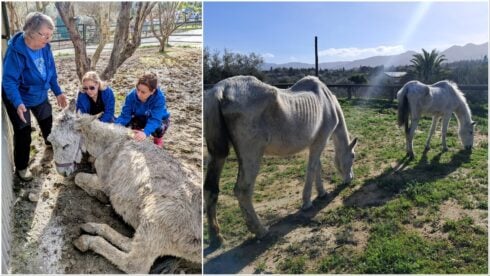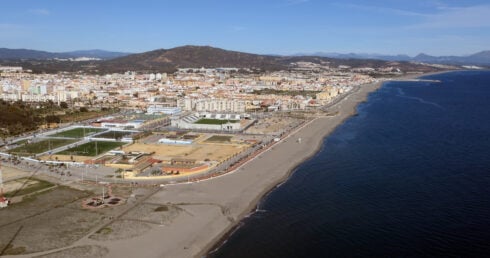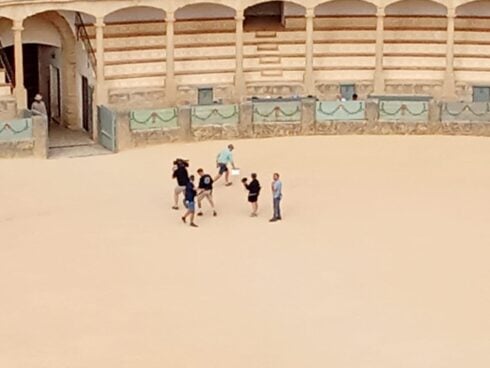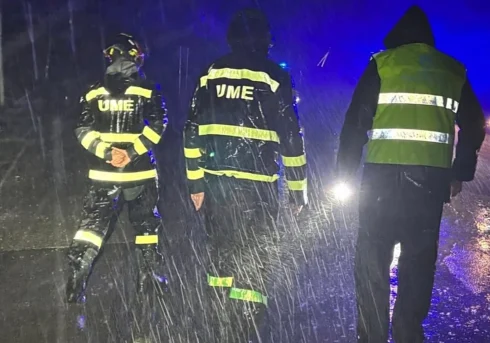THOUSANDS of undocumented livelihoods could be ruined if no deal is struck on the Gibraltar border this week.
That is the number of Spanish and expat tradesmen and handymen who cross the border each week to do odd jobs, usually paid in cash.
According to a government source, they need to be added to the already 15,000 documented workers, who rely on the Rock to pay bills.
“There are loads of people coming in to paint homes and other part-time jobs,” he said. “That’s thousands of livelihoods who rely on a fluid border.”

His comments came as a critical meeting is set for this Thursday in Brussels to sign an unprecedented deal to bring Gibraltar into the Schengen zone.
It follows a high-level meeting in London between the Spanish and British foreign secretaries on Monday.
But, sources behind the scenes are decidedly pessimistic, the Olive Press can reveal.
“I am not optimistic at all. Things don’t look good. Both sides have red lines which are hard to cross,” said the government source.
“If we don’t get a deal things are going to be very hard. We need to find a way though and it depends on the negotiations on the day,” he added.
Failure to reach a deal before the November 10 start date for the EU’s new Entry Exit System will likely see long snaking queues return to the frontier not seen for many years.
Every day over 10,000 Spanish workers cross the border for jobs, while 5,000 more are made up of 3,000 British and 2,000 other international workers.
The new entry system is expected to ‘wreak havoc’ for workers and likely cause major issues for tourists and Gibraltarians coming the other way.

Despite negotiations going on for nearly two years and nearly 20 political summits, no agreement has been reached on the use of the airport and the port.
No deal could be very damaging for the Campo de Gibraltar, which earns around 25% of its GDP from Gibraltar, while an estimated €2 billion or more is made for Spain.
A breakthrough was thought to have been reached in April with the announcement of the ‘general political lines’ of an agreement.
But since then, talks have dragged on, causing heads to drop despite the positive signals continuously emerging from both sides.
Now, it seems that the talks might be approaching the last chance saloon with the resumption of ‘ministerial level’ talks in Brussels tomorrow, the third in the four-way format this year.
Fabian Picardo will fly in to sit with Spanish foreign minister Jose Manuel Albares and his British counterpart David Lammy in a meeting hosted by EU Vice President Maros Sefcovic.

During Monday’s bilateral talks between Albares and Lammy, the upcoming Gibraltar negotiations were high on the agenda.
“Today we will work on a future agreement to ensure that we create this zone of shared prosperity between Gibraltar and the 300,000 Andalucians who are connected with the Rock every day,” Albares told reporters before the meeting.
“We believe that it is in the interests of everyone that the United Kingdom comes as close as possible to the European Union.”
Lammy said that the UK shared these goals to achieve ‘prosperity and security for the people of Gibraltar with a new treaty that cements the relationship with Spain and the European Union.’
It is thought that most aspects of a treaty have already been agreed upon – however the areas still outstanding involve the ‘red lines’ which neither side appears willing to compromise on.
The main sticking point is believed to be control over Gibraltar’s entry points of the airport and port, with Spanish sources insisting their uniformed and armed officers should be present and free to move between both.

The Spanish and British governments are both keen to strike a deal as quickly as possible, yet the latter has made it clear that it will not force an agreement upon Gibraltar.
And Picardo struck a hard-line tone during the Gibraltar Day celebrations, declaring: “We will never surrender our British sovereignty or any part of it.?For any price. For any deal. For any benefit.
“I will only do a treaty if and when it is safe and secure,” he told crowds gathered in Casemates Square.
“Even if that means it takes longer. And even if that means that the deal never comes. Because we are not going to change our position on our fundamentals.
“We are not going to betray our ancestors and forefathers who suffered sieges and hardships to defend our land. Not for fear of new systems or longer queues or a harder Brexit.”
Click here to read more Gibraltar News from The Olive Press.









Ees has been postponed again. France and Germany not teady